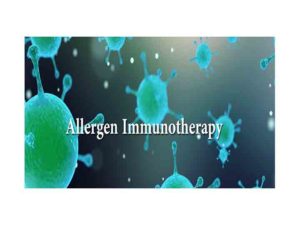What is Allergy ?
Allergy is an immunologically mediated reaction to substances which are considered harmless to most of us. Allergy causing substances are called allergen.
When an allergen enters into the body or come in contact with the body, it react with the already formed antibody leading to activation of mast cell and release of mast cell mediator including histamine, leukotrienes and others. This chemical mediators are responsible for symptoms of allergy.
Mast cell mediators include:
- Histamine,
- Proteases,
- Prostaglandins,
- Leukotrienes,
- Cytokines,
- Chemokines
Effect of histamine:
- Increased venular permeability,
- Increased nasal mucus production
- Bronchial and intestinal smooth muscle contraction,
- Increased heart rate and cardiac output,
- Flushing,
Antihistamines like cetirizine, levocetirizine, chlorpheniramine, fexofenadine, diphenhydramine, loratadine etc drugs act by blocking histamine action on nerve endings. Sodium cromoglicate, nedocromil block a calcium channel essential for mast cell degranulation, stabilizing the cell and preventing release of histamine. These are called mast cell stabilizer. Leukotriene antagonists such as montelukast and zafirlukast block the action of leukotriene mediators and are helpful in allergic diseases.
Common symptoms include:
- Sneezing
- Runny nose
- Itchy nose
- Stuffy nose
- Coughing
- Sore or scratchy throat
- Watery eyes
- Itchy eyes
- Dark circles under the eyes
- Frequent headaches
- Extremely dry, itchy skin that can blister and weep
- Hives
- Fatigue



